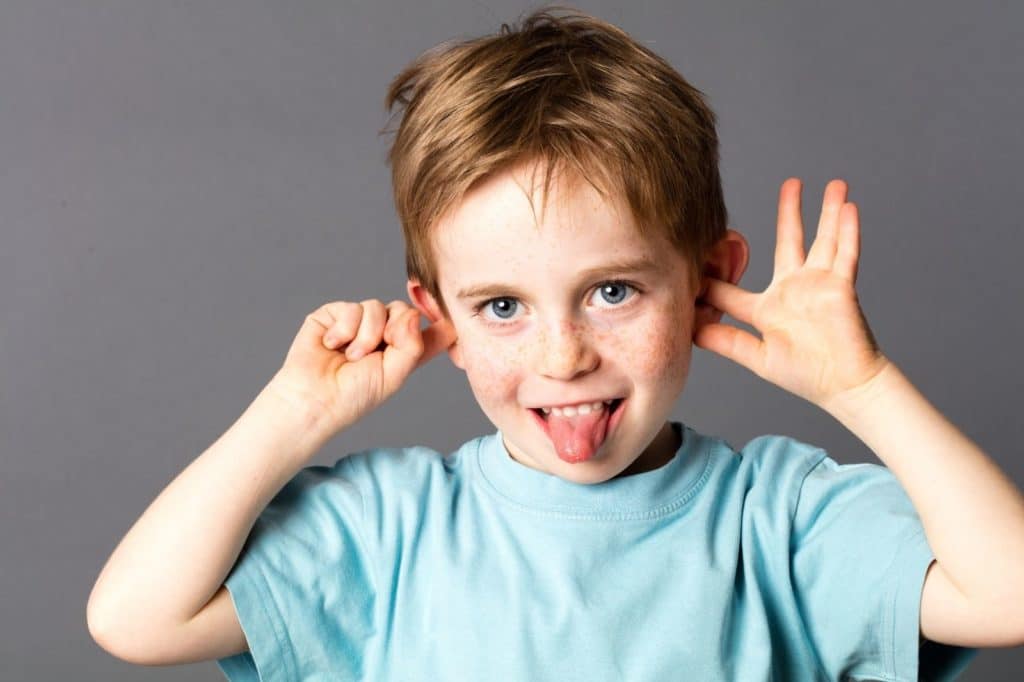Is your child struggling to obey you and even refusing to follow your directions? Does this problem seem to be getting worse? Are you beginning to feel helpless, sad and frustrated as a parent? Perhaps you are beginning to wonder if there is a bigger problem. Maybe the following example will sound familiar to you.
After dinner, Johnny’s mother asks him to take the dishes from the kitchen table and put them next to the sink. She begins emptying the dish washer while Johnny remains at the table watching a TV show going on in the den. A few moments later Johnny’s mother again tells him to take the dishes to the sink as she continues clearing the dish washer. Another minute later she looks up and Johnny has moved to the couch in the den where he is doing something on his cell phone. Johnny’s mother goes to the den and exclaims in a loud, frustrated tone, “Johnny, I told you to put those dishes by the sink.” But Johnny continues to play on his phone as his mother stares at him. After a few moments she shrugs her shoulders and says, “I can’t believe this.” She returns to the kitchen and begins carrying dishes to the sink.
All kids ignore or defy adults’ requests and instructions at times. Expressing “NO” is a normal part of development. But when a child ignores or even defies adults’ instructions it usually leads to conflict. And that conflict can get worse over time. In this blog and the next, I’ll share two different ways of thinking about these situations and give some suggestions for what to do about them. This blog will focus on some common ways that parents and children interact that are sometimes labeled as oppositional or even diagnosed as an emotional or behavioral disorder.
Research shows that conflict between parents and their children isn’t constant. Parent-child conflict tends to happen in “bursts.” These bursts of conflict usually occur when kids refuse to do something they are told to do – or when they keep doing something they’ve been asked to stop. Over time this can result in conflict that seems to become “routine.” And routine conflict can sometimes become more intense and even result in abuse.
So, what is happening?
Researchers have studied children who show more oppositional behavior than what is considered normal. One psychologist, Russell Barkley, proposes that while kids and families with these behaviors are each unique, there tends to be a recurring pattern in the conflicts of those children and their parents. The pattern consists of three stages.
Stage 1: Parent issues a request or command
The parent makes a request or states a command such as, “Will you please take out the trash?” or “I want you to clean your room.” In this pattern, the child ignores the request or command. The parent then restates the command 3 to 7 or more times. The child continues to ignore the command after each request.
Stage 2: Parent issues a threat
Becoming frustrated, the parent issues a threat to the child, such as “I’m tired of telling you. If you don’t take the trash out you’re going to be sorry.” Or, “If you don’t do what I said I’m going to take your phone away.” A threat can also be expressed by tone of voice, posture, and physical gestures. In this stage, the parent restates the threat 1 to 3 or more times and the child still refuses to comply. The child may continue what he is doing or go to another area and do something else. But he continues to ignore the request.
Stage 3: Parent gives in or becomes aggressive
At this point the parent may feel very frustrated and possibly angry. As a result he or she may give up and give in or else become verbally or physically aggressive toward the child.
- If the parent gives in at this stage, the child is more likely to learn it’s not necessary to comply with adults’ requests. And we can expect the same kind of response next time.
- If the parent becomes aggressive toward the child, the child may be hurt emotionally and/or physically. If this happens a lot, the child may learn that it’s okay to use aggression to solve problems with other people.
It is possible that in some families one caregiver may tend toward giving in at Stage 3 while another parent may tend to become aggressive at Stage 3. Further, some parents may go back and forth between the two approaches due to factors such as substance abuse and stress. This can be very confusing and even make a child feel anxious.
So, what can you do if you are concerned that your family is falling into a pattern like the one described above?
- Focus on the positive more than the negative – you cannot pay too much attention to positive behavior!
- Avoid nagging, negotiating or pleading with your children.
- Do not threaten. Threats tend to make things worse over time.
- Provide your child with choices that have fair rewards and consequences that are clear.
- Don’t wait or give in! Follow through with rewards and consequences immediately.
If the level of conflict with your child is low, a self-education approach for parents may be useful. For children (12 and younger), consider reading with your parenting partner, “Your Defiant Child, Second Edition: Eight Steps to Better Behavior,” by Russell Barkley and Christine Benton. For teenagers, consider reading “Your Defiant Teen, Second Edition: 10 Steps to Resolve Conflict and Rebuild Your Relationship” by Russell Barkley and Arthur Robin.
What if your family’s situation is more serious and you don’t feel confident you can change these patterns? Maybe the three stages have been going on for a long time and your child’s reactions have become more intense and occur in other settings such as school?
I recommend talking with a mental health professional who works with families. Family therapy could be a useful way to reduce negative interaction patterns in the family. There is no “one-size-fits-all” approach, of course, but generally speaking for children 12 and younger, the focus is about parenting education and tools to promote parents’ knowledge and skills for improving cooperation among family members. For children 13 and older, effective approaches emphasize family problem-solving, family communication, mutual respect, and conflict resolution skills.
To learn more about oppositional defiant behaviors in children and adolescents and approaches to treatment and support, see the article “ODD: A Guide for Families by the American Academy of Child and Adolescent Psychiatry.”
Oppositional defiant behavior can be difficult and frustrating and we as parents may be reinforcing it without realizing it. With the right understanding of these behaviors and the tools to manage them, parents can make real progress and help their child by increasing their parenting knowledge and skills. In the next article in this series, I’ll share some ideas about understanding and responding to oppositional defiant behavior in children and teens by paying attention to our own emotional reactions to these behaviors.










